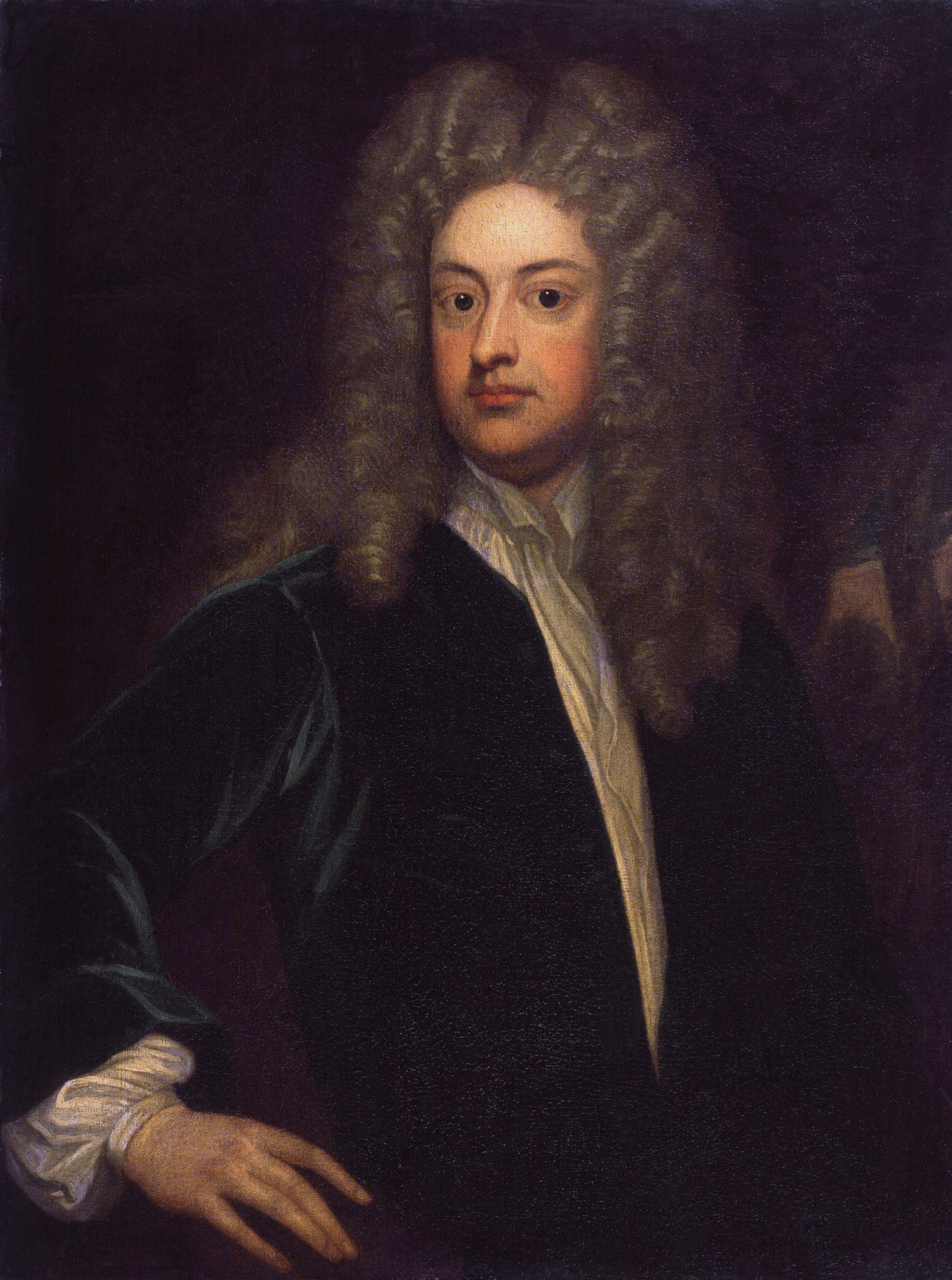Joseph Addison Berühmte Zitate
„Eine Frau fragt in Liebessachen selten um Rat, bevor sie ihre Hochzeitskleider gekauft hat.“
On askin advice in affairs of love
("A woman seldom asks advice before she has bought her wedding clothes." - The Spectator No. 475 (4 September 1712)).
„Niemand ist so unglücklich wie ein Idol, das sich selbst überlebt hat.“
The Spectator
"There is not a more unhappy being than a superannuated idol." - The Spectator No. 73 (24 May 1711)
„Noch jetzt, scheint mir, tret ich auf klassischen Boden.“
Briefe über Italien
"And still I seem to tread on classic ground." - A Letter from Italy, to the Right Honourable Charles, Lord Halifax. 1701.
„Sieh, wie friedlich ein Christ sterben kann.“
Letzte Worte zu seinem Stiefsohn Thomas Tickell, dem späteren Lord Warwick
Original engl.: "See in what peace a Christian can die." - as quoted in Conjectures on Original Composition (1759) by Edward Young
The Spectator
"We are always doing something for Posterity, but I would fain see Posterity do something for us." - The Spectator No. 587 (20 August 1714)
Joseph Addison: Zitate auf Englisch
Attributed to "Addison" in A Dictionary of Thoughts : Being a Cyclopedia of Laconic Quotations from the Best Authors of the World, both Ancient and Modern (1908) edited by Tryon Edwards, p. 580, but this might be the later "Mr. Addison" who was credited with publishing Interesting Anecdotes, Memoirs, Allegories, Essays, and Poetical Fragments (1794).
Disputed
“See in what peace a Christian can die!”
Last words, to his stepson (1719), as quoted in Conjectures on Original Composition (1759) by Edward Young
Variants:
I have sent for you that you may see in what peace a Christian may die.
As quoted in The R. I. Schoolmaster, Vol. V (1859), edited by William A. Mowry and Henry Clark, p. 71
I have sent for you that you may see how a Christian may die.
As quoted in Famous Sayings and their Authors (1906) by Edward Latham
“We are growing serious, and,
Let me tell you, that's the very next step to being dull.”
Act IV, sc. vi.
The Drummer (1716)
No. 225.
The Tatler (1711–1714)
“A little nonsense now and then
Is relished by the wisest men.”
This appears to be an anonymous proverb of unknown authorship, only occasionally attributed to Addison.
Misattributed
Spectator, No. 68.
Bartlett's Familiar Quotations, 10th ed. (1919)
“The ideal man bears the accidents of life
With dignity and grace, the best of circumstances.”
Act V, scene i.
Cato, A Tragedy (1713)
“To my confusion, and eternal grief,
I must approve the sentence that destroys me.”
Act III, scene ii.
Cato, A Tragedy (1713)
No. 383 (20 May 1712).
The Spectator (1711–1714)
No. 231 (24 November 1711).
The Spectator (1711–1714)
Attributed to "Addison" in A Dictionary of Thoughts : Being a Cyclopedia of Laconic Quotations from the Best Authors of the World, both Ancient and Modern (1908) edited by Tryon Edwards, p. 117, but this might be the later "Mr. Addison" who was credited with publishing Interesting Anecdotes, Memoirs, Allegories, Essays, and Poetical Fragments (1794).
Disputed
No. 381 (17 May 1712).
The Spectator (1711–1714)
“Death only closes a Man's Reputation, and determines it as good or bad.”
No. 349 (10 April 1712)
Famously seen on the brothel wall in the film Easy Rider.
The Spectator (1711–1714)
A Letter from Italy, to the Right Honourable Charles, Lord Halifax. 1701.
No. 215 (6 November 1711).
The Spectator (1711–1714)
“When you are at Rome, live as Romans live.”
St. Ambrose, Si fueris Romæ, Romano vivito more as translated in Latin Proverbs and Quotations (1869) by Alfred Henderson; very commonly paraphrased as "When in Rome do as the Romans do".
Misattributed
“Reading is a basic tool in the living of a good life.”
The earliest attributions of this remark to anyone are in 1941, to Mortimer Adler, in How To Read A Book (1940), although this actually a paraphrased shortening of a statement in his preface: Reading — as explained (and defended) in this book — is a basic tool in the living of a good life.
Misattributed
“Were you with these, my prince, you'd soon forget
The pale, unripened beauties of the north.”
Act I, scene iv.
Cato, A Tragedy (1713)
“Plenty of people wish to become devout, but no one wishes to be humble.”
A translation of one of La Rochefoucauld's maxims, published posthumously in 1693. In the original: "Force gens veulent être dévots, mais personne ne veut être humble.".
Misattributed
François Fénelon, in Selections from the Writings of Fenelon: With an appendix, containing a Memoir of his Life (1829) as translated by A Lady (Eliza Lee Cabot Follen) http://books.google.com/books?id=qJ4rAAAAYAAJ, Letter 37, p. 189.
Misattributed
William Temple, in "Heads Designed for an Essay on Conversation" in The Works of Sir William Temple, Bart. in Four Volumes (1757), Vol. III, p. 547.
Misattributed
“A day, an hour, of virtuous liberty
Is worth a whole eternity in bondage.”
Act II, scene i.
Cato, A Tragedy (1713)
“Health and cheerfulness mutually beget each other.”
No. 387 (24 May 1712).
The Spectator (1711–1714)
